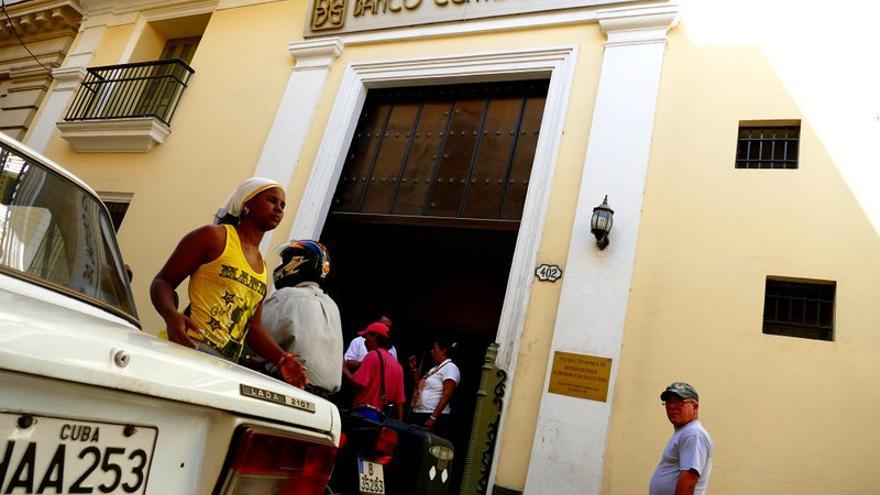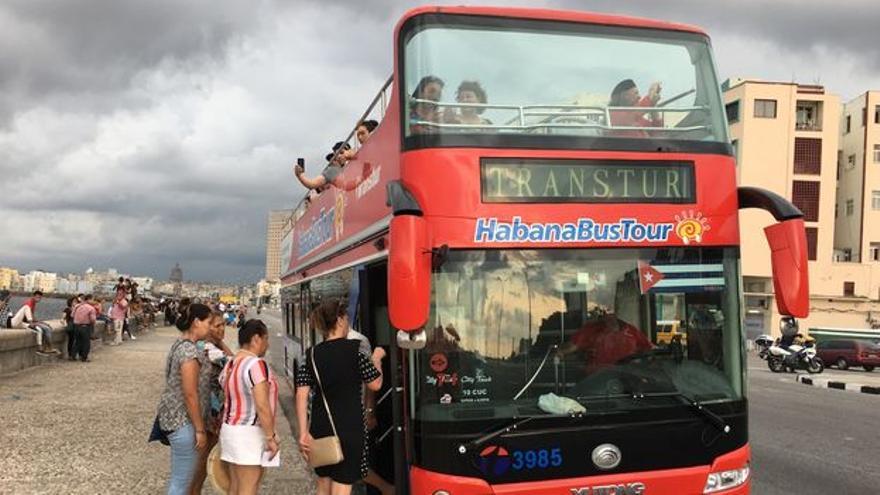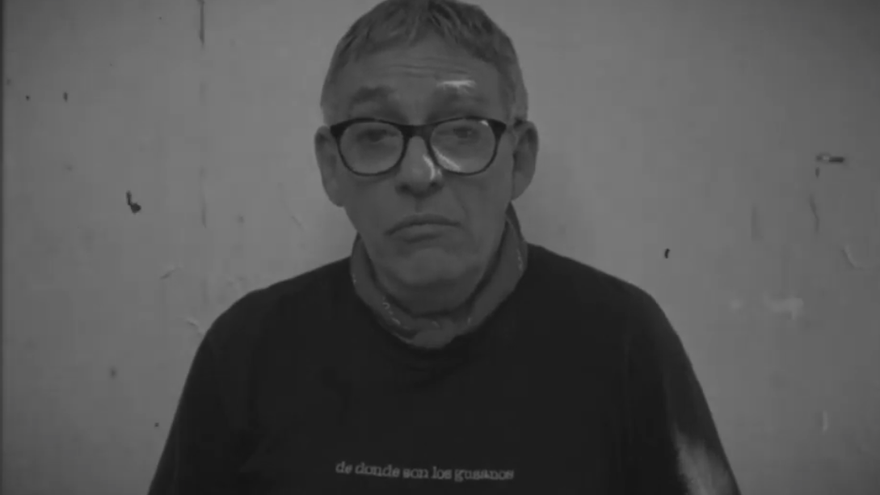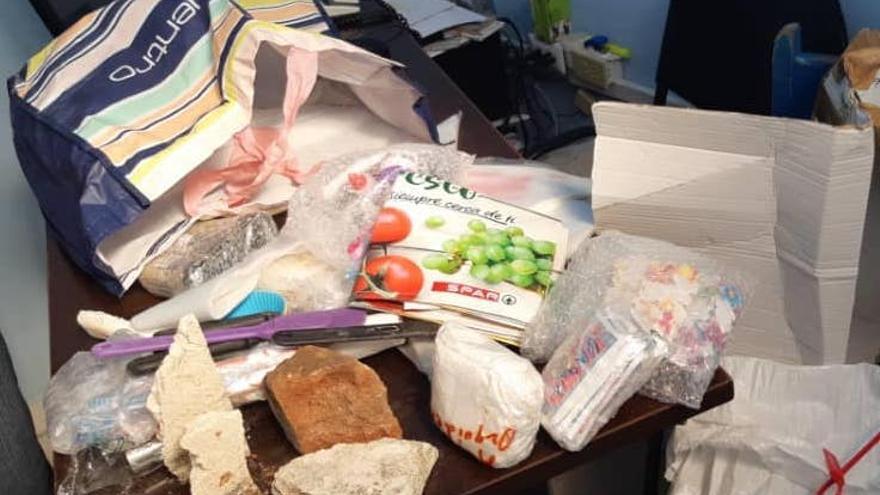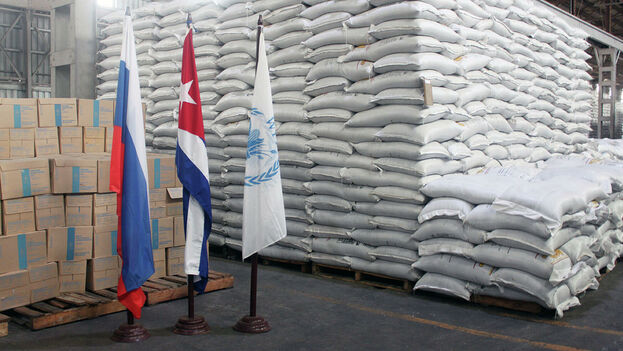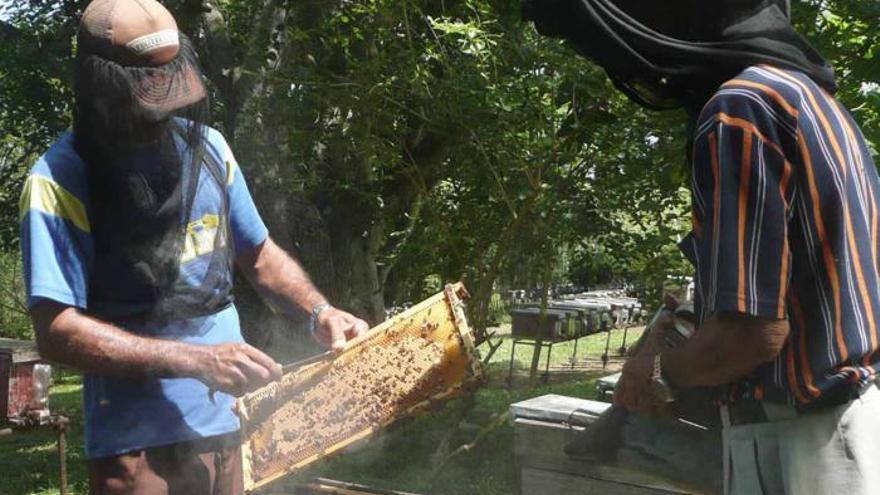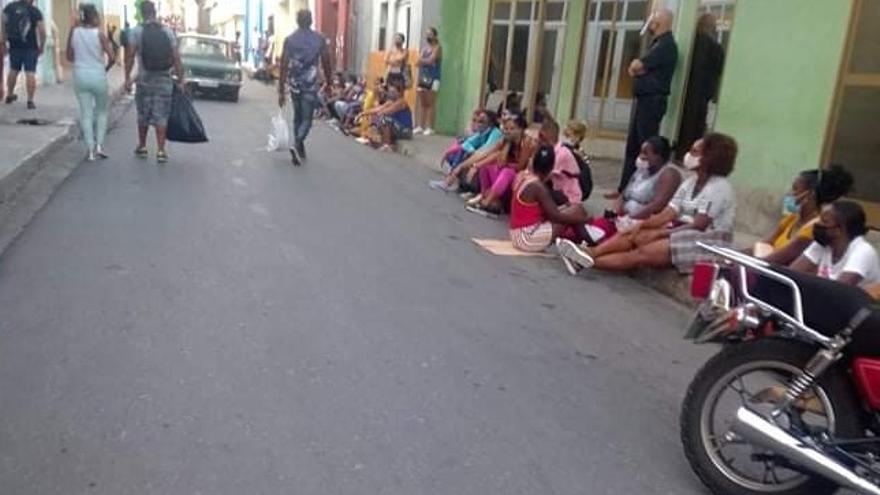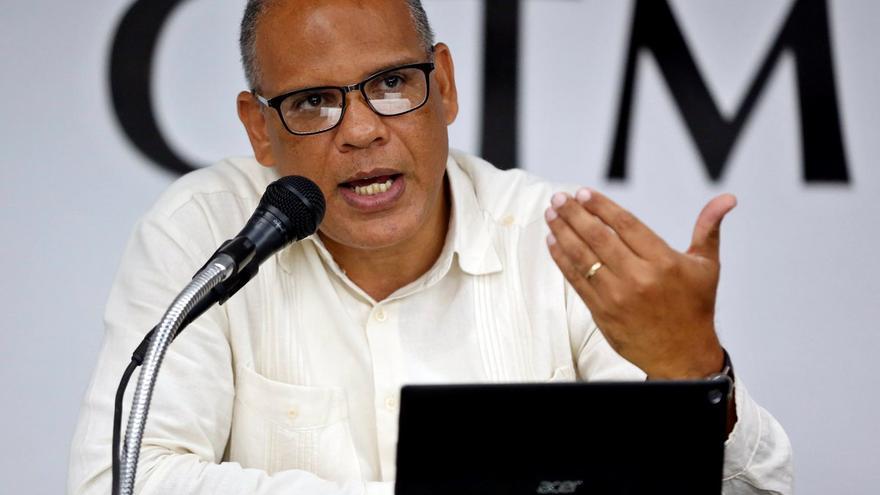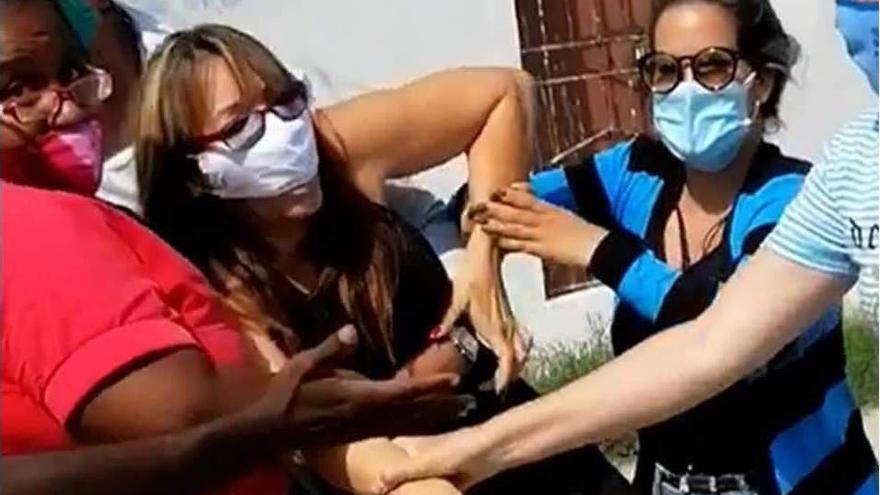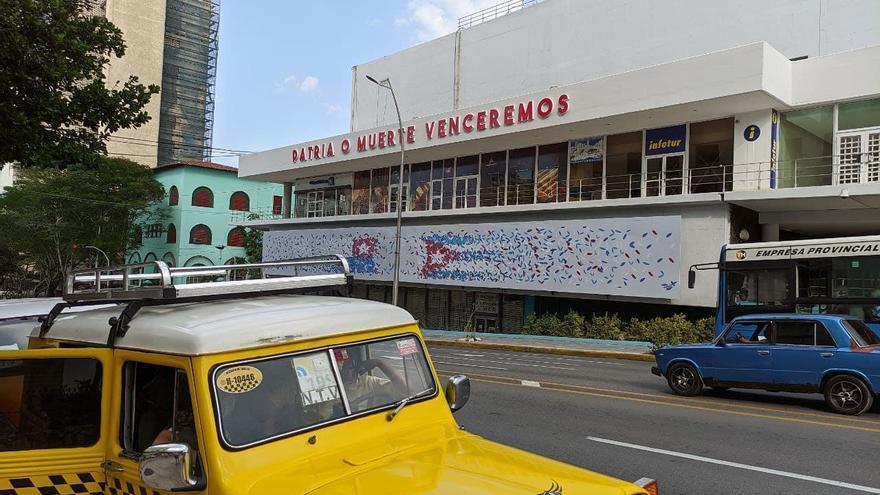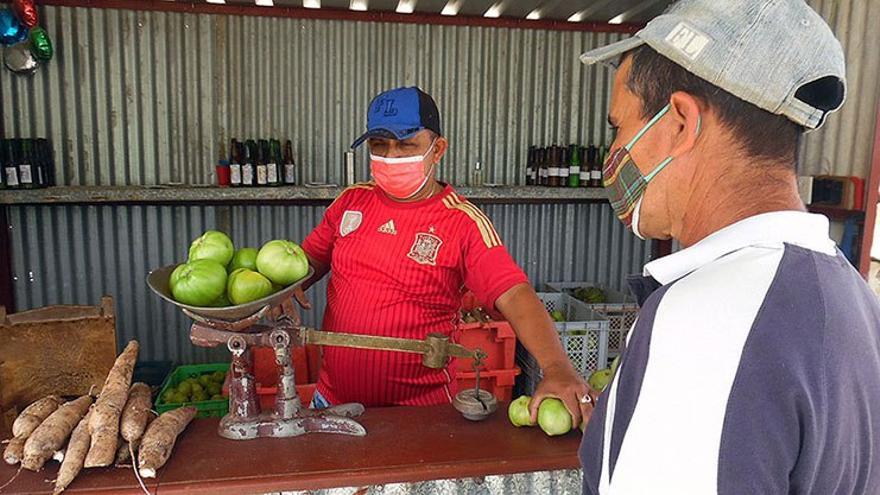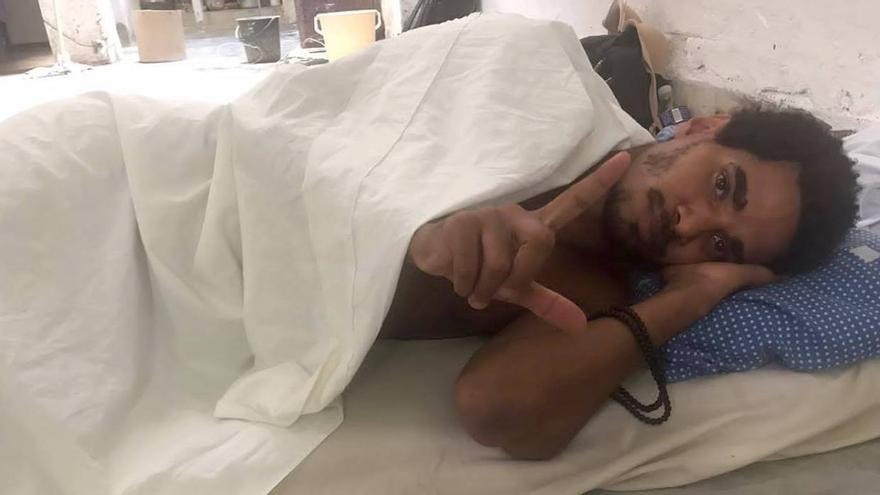
![]() 14ymedio, Havana, 28 April 2021 — After three days on a hunger and thirst strike, the artist Luis Manuel Otero Alcántara is beginning to feel the first signs of weakness in his body. The dancer Chabelly Díaz told 14ymedio that she was able to speak with him and conveyed his determination to continue with the protest.
14ymedio, Havana, 28 April 2021 — After three days on a hunger and thirst strike, the artist Luis Manuel Otero Alcántara is beginning to feel the first signs of weakness in his body. The dancer Chabelly Díaz told 14ymedio that she was able to speak with him and conveyed his determination to continue with the protest.
“Communication with ‘Luisma’ [as Luis Manuel is called by friends] is more emotional every day. Today, on the third day of the strike, his voice begins to sound more tired and there are some flaws in his writing, because his eyesight is affected and the conversations are shorter. The only thing that does not decline is his determination, his thirst for justice and his conditions,” says Díaz.
The dancer plans to visit him this Wednesday, hoping that she will be allowed. “I am determined to enter, I hope they do not stop me like the last time, but if it happens, I will make my rights heard. I need to see with my eyes how he is, to ease the loneliness and offer affection, to be able to convey the message that is going out on the social networks and that he has not been able to see,” she declared. continue reading
Archivo Cuba (Cuba Archive) was also able to speak with him, and warned of the opponent’s worrying state of health. “I am ready to leave my body as this mass of prey mass that the Cuban regime can threaten, can hit, can even prevent it from painting a picture, and even prohibit being an artist,” Otero Alcántara told the NGO.
“We want Otero alive and waging the peaceful battle for freedom in Cuba,” said Archivo Cuba, noting that the hunger strikes “have claimed the lives of too many Cubans who tragically feel that this form of radical protest is what remains to them to defend their fundamental rights. “
The organization has asked foreign correspondents in Cuba to “circumvent censorship” and cover this matter with “justice in order to make known to the world the situation of Otero Alcántara and the lack of freedom of expression” on the island.
The San Isidro Movement (MSI) has demanded that the authorities allow access to the home of Otero Alcántara for his relatives and friends to verify his situation. “Since the early hours of the morning his condition is unknown and we need to know what condition he is in,” they denounced this Tuesday.
Sources close to the artist said that all the access points to the house on Calle Damas in Old Havana, where Alcántara is staying while on the hunger and thirst strike, are under surveillance by State Security and the police. The cause of the protest is precisely this, the police cordon that prevents him from moving freely, in addition to the arrests, fines and confiscations that those who try to get to his house have suffered.
In addition to the lifting of the police siege, Otero Alcántara demands the return of the works of art that were seized by State Security agents, a material compensation of $500,000 and that respect for the exercise of artistic freedoms be fully complied with.
On Tuesday, the police took Manuel de La Cruz from his house and held him under arrest at the Cotorro station until after twelve on Wednesday with the excuse of a summons scheduled for one in the afternoon. The young man has been harassed by the authorities since he was arrested and expelled from his workplace after leaving with Otero Alcántara to distribute candy in San Isidro to celebrate a children’s party dressed as the Desparpajo clown.
The artist Alexis Valdés, who lives in Miami, once again expressed solidarity with Otero Alcántara, whose strike, in his opinion, “symbolizes the despair of many people who cannot find a way out.”
“His desperate act is the reflection of a desperate time in my country. And one says to oneself: What a shame! What a sadness for the country. To continue risking the lives of people with talent and heart. Why can’t we have a country of dialogue, of tolerance, of encounter, of differences, acceptable? Why a country of imposition?” Valdés wrote on his Facebook profile.
Other supportive reactions were that of PEN America, which issued a statement condemning the continuous harassment against Otero Alcántara, and the Patriotic Union of Cuba (Unpacu), whose leader, José Daniel Ferrer, launched a campaign from Santiago de Cuba. For her part, Berta Soler, leader of the Ladies in White wrote on her social networks: “we stand in solidarity with Luis Manuel Otero Alcántara (…) Luisma, you are not alone,” speaking on behalf of his organization.
The members of the MSI in Miami held a vigil through the Zoom platform to support the demands of Luis Manuel Otero Alcántara and show their solidarity “towards him, the besieged people and the political prisoners.”
The poet Katherine Bisquet, the reporter for this newspaper Luz Escobar, and the visual artists Camila Lobón and Julio Llopiz-Casal, among others, had State Security surveillance this Tuesday that prevented them from leaving their homes.
____________
COLLABORATE WITH OUR WORK: The 14ymedio team is committed to practicing serious journalism that reflects Cuba’s reality in all its depth. Thank you for joining us on this long journey. We invite you to continue supporting us by becoming a member of 14ymedio now. Together we can continue transforming journalism in Cuba.

